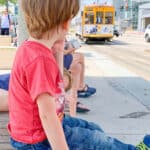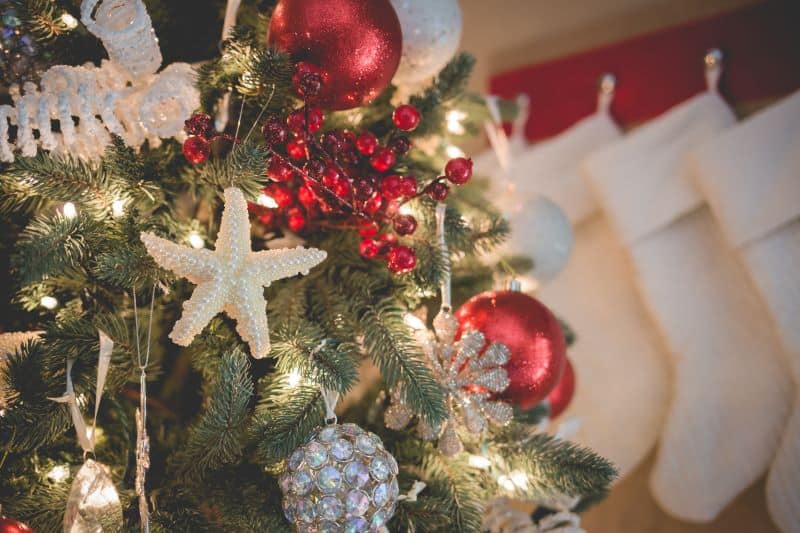May Your Holidays be Merry and Safe!
Whether it’s visits to grandparents’ homes or hosting family at yours, the holidays can be a chaotic time when ordinary rules and protocols fall through the cracks. That’s why we put together these quick basic tips to help us stay safe and healthy this holiday season.
STAY HEALTHY
This year, in addition to lingering COVID and the typical expected flu season, we have a previously overlooked player: RSV, or respiratory syncytial virus. Normally just a winter virus, RSV cases began to tick up this past summer, rise steeply in the fall and continue to surge this winter, filling children’s hospitals with kids.

Looking for Things to Do in Tampa Bay?
>>This Week’s Favorite Events
>> Nearby U Pick Farms
>> 40+ Free Things to Do with Kids
While anyone can become infected with the viruses that cause the flu, COVID or RSV, certain groups are at higher risk of becoming severely ill from all three, such as older adults, very small babies and anyone with a compromised immune system or health conditions such as congenital heart or lung disease.
How can we prevent becoming sick with the flu, COVID or RSV or from transmitting the disease if we have it?
- Cover your coughs and sneezes with a tissue or your upper shirt sleeve, not your hands. Throw away the tissue and wash your hands right away.
- Wash your hands often with soap and water for at least 20 seconds. When using hand sanitizer, use enough hand sanitizer so that it takes at least 15 seconds for your hands to dry.
- Avoid close contact, shaking hands, and sharing cups and eating utensils with others, especially if you are caring for a sick person. As adorable as that little baby might be, avoid the temptation to kiss them, especially if they are in a high-risk category such as being born premature.
- Clean frequently touched surfaces such as doorknobs, mobile devices and banisters. When traveling, wipe down that tray table, seatbelt clasps and armrests.
- Get vaccinated. There are vaccines for both the flu and COVID that can reduce the severity of the disease if you get it. There is no vaccine for RSV.
TOY SAFETY
As we start tackling those holiday lists—or start monitoring gifts that relatives are giving your little ones—a little thoughtfulness can prevent an unpleasant Christmas Eve visit to the emergency room:
- Choose age-appropriate toys. Even if the child seems “advanced” and could intellectually handle a more sophisticated toy, there may be safety reasons that a toy is marked for a certain age.
- Check toys for small components or removable pieces that might become choking hazards. Especially when you have children of mixed ages playing in the same space, ensure that the tiny ones do not have access to unsuitable toys. Store toys away after play.
- For any wheeled toys, such as scooter or bicycles, include a helmet!
- Sign up for toy recalls or look up recalls.gov to stay up to date on any new developments.
TRAVEL SAFETY
Nothing says the holidays like an exciting visit to grandma and grandpa’s house! But it may have been a long time since your well-meaning parents have had little ones in the house. Or maybe you’re hosting little ones and yours are older now. Whether you’re traveling or welcoming little ones to your home, keep these tips in mind:
- Travel with your car seat, even if you are flying, so you can secure your child in the plane. Ensure that your car seat has a label that states that it is certified for use in aircraft; otherwise you may be asked to check it in.
- Store cleaning products, personal care products and medications out of sight and out of reach of little hands and mouths. If any of these things are accidentally ingested, call poison control at 800-222-1222.
- Keep window blind cords looped up and out of reach of little ones who can get easily stuck in the cords and possibly choke.
- Make sure all buckets and tubs are drained and toilet lids are closed. If there is a pool, ensure that it has a cover and pool fence that a child cannot open, with alarms that let you know if there has been a breach. Keep doors locked and arm your sensors.
- If you are staying in a hotel, request a crib or bassinet so baby can sleep safely alone on their back in their own sleeping area.
Sources: Centers for Disease Control; Safekids.org. | Originally published in December 2022 of Tampa Bay Parenting Magazine.





